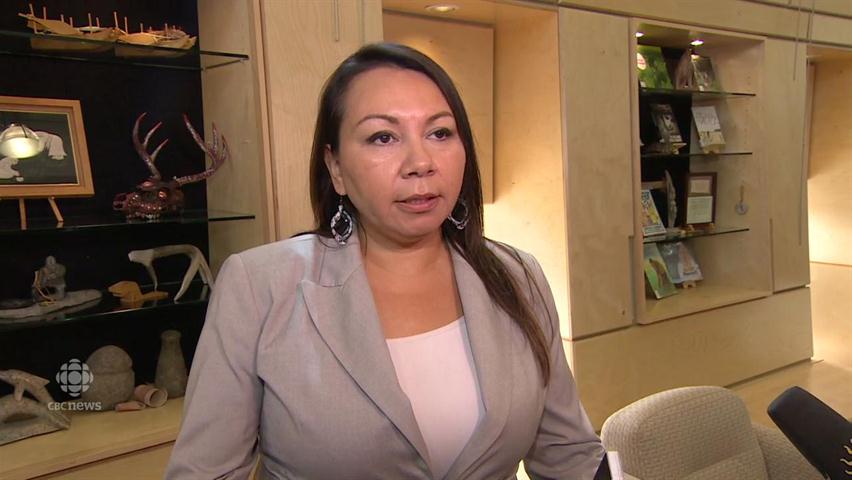OTTAWA/WINNIPEG, Manitoba, (Reuters) – Canadian legislators told an emergency parliamentary session on Tuesday night that a rash of suicide attempts by aboriginal teenagers in a remote, poverty-stricken community was “completely unacceptable” and vowed steps to keep it from happening again.
Over the past weekend alone, 11 members of the Attawapiskat First Nation community in northern Ontario tried to kill themselves, prompting the chief to declare a state of emergency. Separately, a second group was hospitalized on Monday after suicide attempts.
The incident shocked the country, even though it is used to tragedies involving its 1.4 million aboriginals, who largely live in poverty, have a lower life expectancy than other Canadians and are more often victims of violent crime.
Health Minister Jane Philpott said the suicide rates among aboriginal youth were at least 10 times higher than for the general population of young people. Aboriginals make up about 4 percent of Canada’s population.
“It is a staggering reality, it is completely unacceptable … there is nothing more devastating than realizing someone has reached the point of no hope,” she told the emergency debate in the House of Commons.
“Tonight has to be a turning point for us as a country in order to decide together that we will do better,” she said.
Canada’s new Liberal government said last month it would spend an extra C$8.37 billion ($6.54 billion) over five years to help the aboriginal population deal with dire living conditions.
In Attawapiskat, 28 people attempted suicide in March, some of them adults, health officials said. Children as young as 11 were among those who tried to kill themselves during the past few days and police began 24-hour patrols in response to the crisis.
Charlie Angus, a federal legislator from the opposition New Democrats whose constituency includes Attawapiskat, said Canada had betrayed its aboriginal youth.
“The greatest tragedy in this nation is that we would waste a generation of children. What squander of potential,” he said. “We failed them. It has to stop.”
The federal government and other authorities have sent 18 additional staff to Attawapiskat, including counselors, mental health workers and police.
Prime Minister Justin Trudeau, who called the suicide attempts “heartbreaking,” took power last year promising to improve aboriginal living conditions. He did not attend the debate.
‘WE FEEL ISOLATED’
The reasons for the attempted suicides are varied, but local leaders point to an underlying despondency and pessimism among their people as well as an increasing number of prescription drug overdoses.
Living in isolated communities with chronic unemployment and crowded housing, some young aboriginals lack clean water but have easy Internet access, giving them a glimpse of affluence in the rest of Canada.
Attawapiskat, 965 km (600 miles) north of Ottawa on James Bay, is only accessible by plane or winter ice road.
“We feel isolated – we don’t feel part of the rest of the world,” said Grand Chief Sheila North Wilson of Manitoba Keewatinowi Okimakanak, who represents 30 aboriginal communities.
Attawapiskat, which has 2,000 people and is near a diamond mine, has declared five states of emergency since 2006. It previously sounded the alarm over flooding and raw sewage issues, poor drinking water and a housing crisis.
Declaring a state of emergency is a symbolic move and does not legally oblige Ottawa to take action, said a government spokeswoman.
The problems plaguing aboriginals gained prominence in January when a gunman killed four people in La Loche, Saskatchewan. An aboriginal teenager was charged in the shootings.

Legislators complained during the debate that Ottawa had not yet delivered all the extra aid it had promised La Loche.
Another Canadian aboriginal community in the western province of Manitoba reported six suicides in two months and 140 suicide attempts in two weeks.
“An individual attempt at suicide is bad enough itself, but if there seems to be a group thing, it’s even more cause for alarm,” said National Chief Perry Bellegarde of the Assembly of First Nations, Canada’s main aboriginal political group.
In 2011, the U.N. special rapporteur for indigenous people said he was “deeply concerned” about living conditions in Attawapiskat.
Resident Jackie Hookimaw-Witt, whose teenage niece committed suicide last autumn, said it was the third attempt for one 13-year-old girl who survived on Saturday. She said the girl had been challenged to kill herself on social media.
In Cross Lake, Manitoba, dozens of people, many of them youths, have attempted suicide this year, said community health director Helga Hamilton. In some cases, teenagers talked about group suicide before trying to kill themselves separately.
